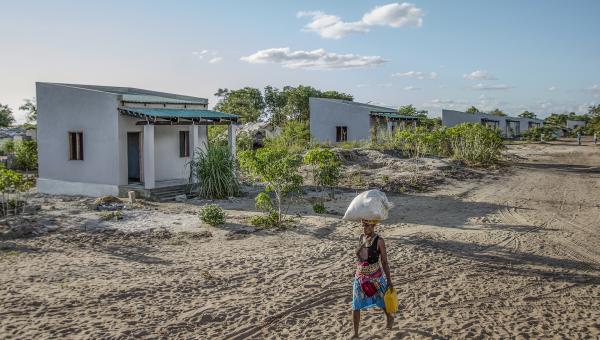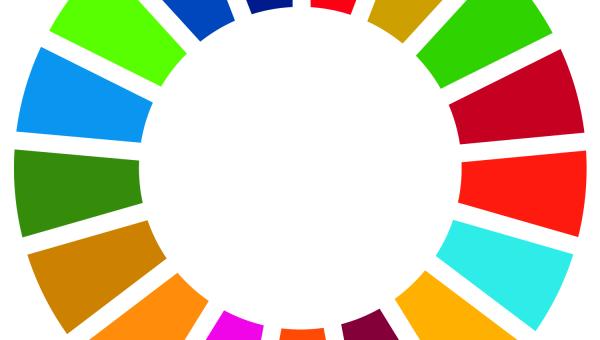Mozambique
Resilient and Inclusive Economic Recovery, Diversification and Sustainable Livelihoods
UNDP’s support in the area of resilient and inclusive economic recovery and diversification and sustainable livelihoods focuses on strengthening livelihoods of most the vulnerable communities, including IDPs, in areas affected by disasters and violent extremism, and building social capital through enhancing knowledge, vocational skills and capacities for more diverse and sustainable livelihoods, such as enabling access to digital financial services and exchange of technologies to MSMEs, particularly those led by women. As such, the organization prioritizes:
-
Participatory identification of target group specific livelihoods needs and sustainable economic recovery opportunities; livelihood stabilization through emergency employment creation for crisis-affected vulnerable groups in the rehabilitation of basic social and economically productive projects. Communities are actively engaged in the entire process from planning, design, implementation, and monitoring.
-
Facilitation of individual savings for investment in economic activities and start-up of small businesses and further linkage to microfinance Institutions.
-
Objective selection of Micro, Small and Medium Enterprises (MSMEs) for recovery and local economic development through innovative linkages with financial institutions, increased access to business development services, markets, technology, product development, and training.
-
Support development of workforce capacities and skills by strengthening existing Vocational Training Centres, for demand-driven delivery of vocational training services to vulnerable populations, including persons with disabilities and female heads of households, encouraging public and private sector to invest in “green jobs” creation.
In Depth
One of the key development challenges in Mozambique are the intensifying climatic events, pressing a need for improving national and local preparedness and response capacity in Mozambique. In partnership with the Government of Mozambique, UNDP is coordinating and implementing short-to-long term recovery actions that address root causes of vulnerability and build resilient post-disaster recovery. A key focus is given to the informal economy and for building social capital through enhancing knowledge, vocational skills and capacities for more diverse and sustainable livelihoods, such as enabling access to digital financial services and exchange of technologies to MSMEs, particularly those led by women. These interventions aim to strengthen livelihoods of most the vulnerable communities, including IDPs, in areas affected by disasters and violent extremism.
By December 2020, the activities and interventions started earlier were completed with assistance to 156,143 heads of households from 99 target cyclone-affected communities, host communities and communities with IDPs in Cabo Delgado and Sofala provinces. In 2021, the project has targeted an additional number of 30,000 households, including the communities affected by cyclone Eloise and storm Chalane. From the total number of assisted heads of households, 51.4% are female-headed households; 8,9% are headed by elderly people and 2.5% by people with disabilities.
The following income generation activities were prioritized for their recovery: small business, carpet making, sewing; hairdressing; carpentry, poultry farming, agriculture, milling, reforestation and fruit trees plantation, livestock, fish farming, beekeeping, agro-processing, solar power for businesses, sawmilling, mechanics, bricklaying and plumbing
Most vulnerable affected people were provided with temporary employment through labour intensive rehabilitation of community prioritized productive infrastructure/assets and waste/debris management (i.e., clean-up campaigns, securing emergency/existing dumpsites in Sofala and Cabo Delgado). Beneficiaries worked in average 10 days during a month, receiving MZN 200 as daily labour wage.
The temporary work activity ensured gender inclusion, community engagement and, where feasible, the application of UNDP’s 3x6 approach. In summary these temporary employment interventions through labour intensive work resulted in:
- Cleaning about 151,903 tons of solid waste;
- Rehabilitation of 1,355 community market stalls;
- Rehabilitation and Cleaning of 8565.78 m3 drainage canals;
- Opening and clearing of 960,826 km community access roads;
- Creation of 17,651 m2 of Greenhouses for increasing horticulture production and extend productive window;
- Construction of 17,500 m2 nurseries for production and multiplication of fruit and nonfruit trees;
- Construction of 15 safe potable handpump water points;
- Collection of 17,658 m3 of waste for recycling;
- Opening of 4 fishponds with approximately 20,000 cubic meters;
- Laying of 1,469,680 Sun-dried bricks making with local materials;
- Construction of 9 institutional improved stoves and 5639 portable smart stoves (households);
- Construction 3130 m2 of community cattle and goat barns;
- Construction 45 small bridges with a total of 135 meters;
- Construction/ improved 7,893 home traditional latrines;
- Construction of a pottery house;
- Construction of a cattle treatment sleeve;
- Construction of 20 porches for community and local leaders meeting;
- Rehabilitation/creation of 1,360.95 ha of arable land for farming;
- Construction of 14 houses for milling machines;
- Construction of 25 tanks for elevated water deposit;
- Established 17,172 handwash station;
- Plantation of 246,180 trees for afforestation and shade purposes;
- Established a total of 214.51 ha of homestead basic gardens and assisted the households in plantation;
- A total of 3808m3 green waste in the process of recycling into compost;
- A total of 31,927 household garbage pits established.
The beneficiaries were organized, and 312 Village Savings and Loans Associations (VSLA) were formed with a total of 11,306 members of which 6,491 are female headed households. These groups were trained about microfinance and credit mechanisms and are now connected to the formal financial systems. Together, they have been able to save MZN 4,604,433.00 and offer MZN 1,780,172.00 in credit to members to invest in their small businesses. Particularly residents of Savane and Mutabira neighbourhoods have used the resources from the VSLAs to kick-start their business at the rural markets constructed by MRF in 2020. An accumulated balance of MZN 2,010,087.00 is still available for members to borrow and invest in viable income generating activities. The schemes are vital for economic sustainability, self-employed businesses and support in income generation. Such saving and loan mechanisms provide a local solution to diversify their income and provide additional cash for urgent and basic needs (health, schooling, etc).
In order to strengthen the beneficiaries' knowledge and skills in developing their small business initiatives, 23,497 household heads were trained in new skills and small businesses (improved stove production, carpet making, agro-processing, civil electrician, hair dressing, civil works, tailoring, shoe making. Following the skills training the groups were supported with start-ups to initiate their business. Below are few examples:
-
Group of 95 women who are the only breadwinners of their households started homemade bread production: (18 women in Metuchira, 47 women in Ndeja and 30 women in Savane);
-
Group of 24 women heads of households started the production in groups: 11 women in Ndeja and 13 women in Savane;
-
Group of 15 women heads of households started production of various pottery products;
-
Group of 13 women heads of households started the production of salt.
-
Group of 236 (155 boys and 81 girls) orphan youth heads of households benefited from three months of vocational skills training in partnership with the institute of vocational trainings Alberto Cassimo Institute for Professional Training and Labor Studies (IFPELAC) and the District Service of Economic Activities (SDAE), in the areas of information technology, civil locksmith, agro-processing, civil electrician, masonry and steel works. These courses bring added value to the recovery of livelihoods and economic empowerment of vulnerable groups, through the offering of professional qualification in short time in a very dynamic environment, focusing on updating and improving specific field expertise and market knowledge towards the students’ main career interests and for their rapid insertion in the job market.
While numerous enterprises were supported across all sectors last year, in 2021 the MRF Programme prioritized the fishery and poultry sector to support the recovery of the most vulnerable Micro, Small and Medium Enterprises (MSMEs). In partnership with Associação Comercial da Beira (ACB), UNDP has profiled and selected 1,000 beneficiaries MSMEs support, identified business training needs and defined enterprise recovery packages. Currently training curriculum is being developed to respond to the needs identified, and recovery materials, equipment and inputs are being procured. Over 500 micro and small businesses operated by women have been short-listed for licensing support in collaboration with UN WOMEN. All MSMEs activities are implemented in coordination with government departments at provincial and district level (Beira, Dondo and Nhamatanda).
The UNDP values the importance of the protection from sexual exploitation and abuse (PSEA) of vulnerable people in disaster recovery interventions and is collaborating with UN Women since 2019. PSEA capacity building intended to facilitate the implementation of gender-responsive humanitarian activities, support government in the integration gender in humanitarian response, gender analysis and strengthen MRF implementing partners (IPs) to systematically integrate PSEA and gender dimensions in programming was carried out. A total of 106 (41 in Beira, 34 in Dondo and 31 in Nhamatanda) beneficiary group representatives and IP gender focal persons were trained and will be supported in the promotion of PSEA activities through the life of the MRF Programme.

 Locations
Locations

